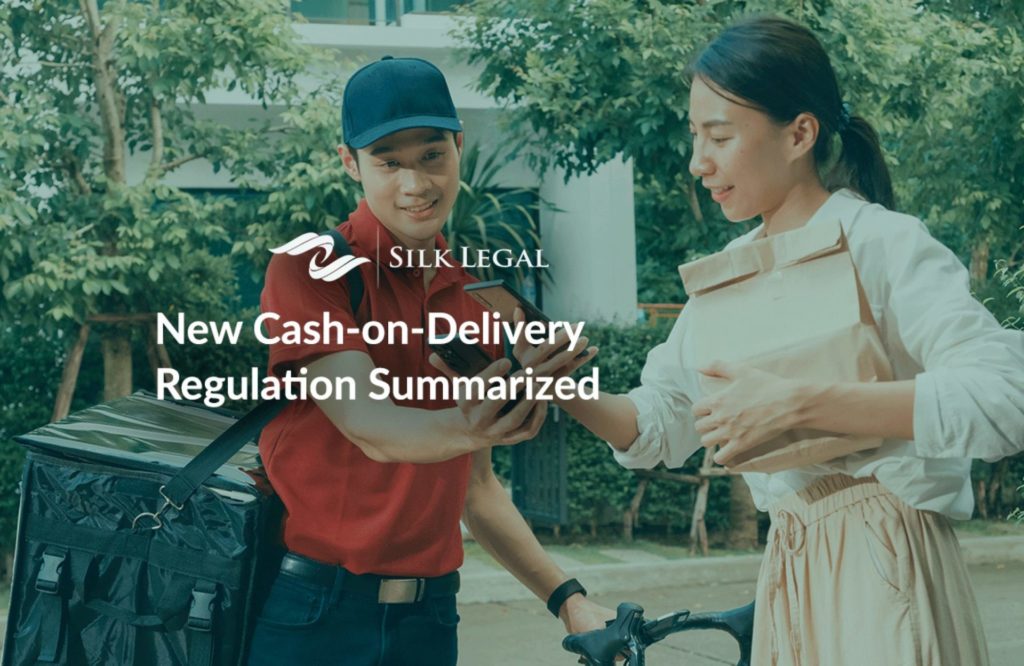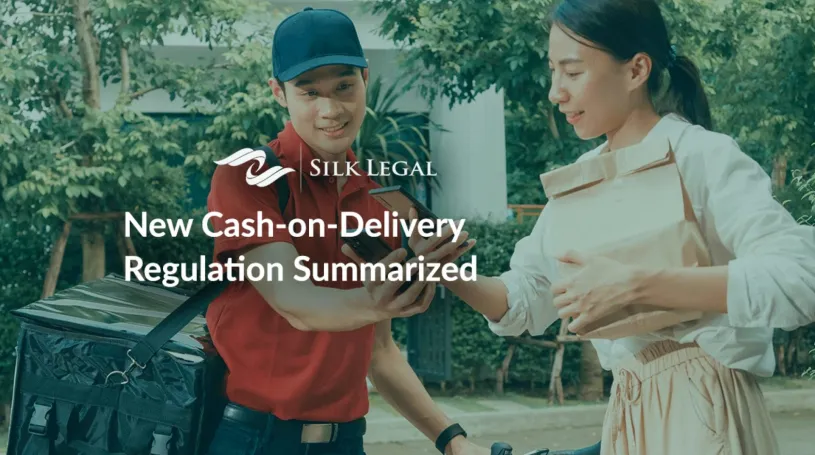Silk Legal - New Cash-on Delivery Regulation Summarized

Earlier this month, the Consumer Protection Board’s Committee on Contracts issued a notification regulating cash-on-delivery (COD) logistics services under the Consumer Protection Act of 1979. This regulation applies to businesses transporting goods and collecting payment upon delivery, either in cash or via bank transfer. It is expected to take effect on 3 October 2024.
The regulation addresses a growing issue around e-commerce disputes and instances where scammers use COD services to defraud consumers. In many instances, consumers receive packages they did not order or goods that are defective, incorrect, or do not match the description. The lack of standardized practices and clear consumer rights have been exploited by unscrupulous individuals, making it difficult for buyers to get refunds or return unwanted items.
The government’s regulation of cash-on-delivery (COD) services aims to enhance consumer protection, ensure transparency, and promote fair trade practices. By standardizing receipt requirements and prohibiting unfair clauses, the regulations aim to provide clear guidelines for all business operators, preventing fraud and ensuring accountability. Detailed documentation of transactions and inspections helps resolve disputes and trace transactions effectively.
Key Points of the Cash-on-Delivery Regulation
What needs to be included in COD receipts
The regulation covers businesses responsible for transporting goods from the merchant to the consumer and collecting payment upon delivery. Business operators must provide a receipt to the consumer immediately upon receiving payment. The receipt must be in Thai, with clearly visible and legible text, using a font size of at least two millimeters and no more than 11 characters per inch.
It must include the following details:
- How long the business operator will hold the money before releasing it to the sender;
- The timeframe within which the consumer can notify the business operator to return the goods and request a refund;
- Information about the delivery personnel;
- The name of the authorized person issuing the receipt;
- Details about the parcel, including a description of the goods delivered, such as their names, weight, dimensions, quantity, price etc.; and
- A statement declaring the consumer’s right to reject the delivered goods or receive a refund.
The regulation also outlines statements that are prohibited from being included in the receipt. These include clauses stating that refunds will not be issued, exchanges or returns are not permitted, or that business operators or senders are exempt from or have limited liability when buyers receive incorrect goods, goods that do not match the order, or defective goods.
The validity of refunds
After receiving payment from the buyer, business operators must hold the money for five days. If no refund request is made within this period, the funds can be transferred to the sender. If a refund request is made and verified within the five-day holding period, the business operator must refund the total amount within 15 days and return the goods to the sender.
The regulation further clarifies that refunds are valid if the goods delivered are defective or do not match the order. Refunds are also applicable if the buyer receives goods they did not order but is charged COD and has already paid. If the returned goods meet the refund criteria, the delivery operator must accept the return, return the goods to the sender, and refund the customer.
Documenting the inspection of goods
If the buyer opts to inspect the goods upon delivery, the delivery operator must document the inspection using photos, video, or other forms of evidence. If inspecting the goods upon delivery is not viable, the buyer can conduct the inspection independently. They must submit the evidence within five days to claim a refund if the goods are found to be incorrect, defective, or unordered.
Concluding comments on the upcoming COD regulation
By implementing these regulations, the Thai government aims to tackle fraudulent practices and address instances of disputes when buyers order from online vendors. Standardized receipts with clear information and prohibited clauses aim to protect consumers from unfair terms, while detailed documentation and inspection requirements ensure accountability. These measures may help resolve refund disputes and ensure that consumers can confidently reject and return goods that do not meet their expectations.
Read more https://silklegal.com
Silk Legal can provide a range of services for several practice areas. This article is for information only. While we have tried to keep our updates as accurate as possible, changes to legislation or other factors may affect your decisions. Please feel free to contact us for a free consultation at info@silklegal.com.
Author Dr. Paul Crosio





